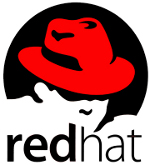What is in the title of a software company? Does the name resemble anything that the company offers? Or do you not care so much and already have a pre-fixed image in your mind of what the business offers, even if you don’t know exactly what the business does offer and nothing will change your mind?
The recent and somewhat aggressive outburst by the CEO of open-source software giant Red Hat, was a surprise to a lot of people. What the CEO was suggesting was that all closed-source and proprietary software from large IT industry corporations Microsoft and Oracle, be eliminated off the face of the planet. You can read the exact statement made by the CEO on the Internet. It’s rather bold and gutsy statement. But it raised a question in my mind. What does the title of a software company bring to your mind when you hear it?
Microsoft: The evil company that every Linux user hates and thinks that its primary operating system Windows, is evil.
Oracle: The company run by a rich man who loves to wipe out rival companies, dine in style on expensive yachts and arrive at meetings by helicopter.
Those are purely hypothetical scenarios and not necessarily what you or I might think about those companies. But I am just trying to give you, the reader, some sort of concept of what I am referring to. Generally, when we hear a company name, we get an instant image and association of some sorts in our minds.
Can this perception be changed? Can companies really change their ways and get your confidence on board whereas it was not before? Microsoft and Oracle are large companies. And they either have your respect or they don’t. In truth, Microsoft and Oracle probably don’t really care about what the opinion of the CEO of Red Hat and what he thinks of their business model. And Microsoft and Oracle are not going to change their business models to cater for free and open-source software. At least not in the same manner as what Red Hat does. I don’t believe there is enough room for 3 or 4 major technology companies all offering open-source software. And I don’t believe the bottom line dollars of them all would be anything near what they are today if it were the case. Red Hat is probably in such a good competitive position because of the very nature of the situation as it currently stands. Actually, Red Hat should just keep quiet and embrace and work with its current level of growth and take full advantage of the fact that it does not have any serious threat or competition in the commercial open-source IT sector.
All companies have specific dollar targets and they are only in the global IT position that they are because they do what they do. Acquisitions and take-overs are always going to happen. In fact, Microsoft does have some investments in FOSS. But it is still a little unclear of what their long-term investments, interests and intentions are in such sectors.
Oracle is in a very similar position but operate their core business in a slightly different manner. Oracle does have some free and open-source offering in the services line. But how open they currently are and how open they’ll remain in the very near future is up for some heavy criticism. Oracle is playing a very dangerous game if they’re aiming to gain the true confidence of free and open-source software users.
Let’s assume the personality of a passionate Linux user who does not currently use Windows. In a fantasy world, Microsoft is going to announce tomorrow that Windows is now open-source and you can download the source code from their website. Or exaggerating a little more again, Microsoft announces that they are going to drop the Windows kernel and build the next Windows OS around the Linux kernel. Microsoft Linux 2014! – How would you feel? Would you have any inclination to use the new open-source Windows OS? Probably not. You’d probably stick to the Linux OS that you currently use. And it’s probably because Microsoft has tarnished your confidence in them too far already and you no longer trust them that as a business, they’ll do the right thing.
Or for a little bit more fun, let’s assume you’re a passionate Linux user who hates anything Oracle related and think it’s the worst software company that you’ve come to know. You’ll wake up in the morning and direct your browser to Slashdot for the latest geek news, which has become your daily routine of late. There on the front page of Slashdot is the news you were dreading. Linus Torvalds has taken the Linux kernel to Oracle and signed an agreement to integrate Linux technologies into the Solaris kernel and Solaris operating system. Eventually dissolving the Linux kernel as it stands today and becoming the new Oracle Solaris kernel. And community input and development would cease to exist as we know it. – If such a scenario was to eventuate, you’d probably have no choice but to use the new Solaris OS with built-in Linux technologies. But you’d probably hate Oracle for what they had done to the once advanced Linux kernel, by closing the source code and locking out community development, interest and consultation.
What we associate with a company title and how we perceive their behavior is only a normal feature of being a human being. And sticking to what we feel comfortable with and what feels familiar, right and genuine to us is perfectly natural.
Microsoft will go on into the foreseeable future being a software and internet company primarily relying on income and investments in closed-source and proprietary software. Oracle is in a different stage of its history at current and certain portions of its business structure are in a midst of change. But they do have some open-source and free software available, largely thanks to the Oracle acquisition of Sun Microsystems. Some have been closed and/or shut off from community involvement. And some of Oracle’s software services are still being reviewed and a long-term future determined. But their general business structure and model is the same as it always has been. And its true core and survival lies with closed-source and proprietary software.
And then we welcome Red Hat. Although not the grandfather of all things Linux, it is still a well-respected company and a commercial and corporate advocate for free and open-source software. Through careful management and planning, Red Hat can continue to strive for success and prove that business can prove financially sustainable with FOSS.
But as I mentioned earlier on in the article, closed-source and proprietary needs free and open-source to compete, innovate and progress. And vice-versa. A large factor that has made the Linux kernel so technically advanced and successful is due to the proprietary nature of its opponents. It’s all part of what keeps the IT industry rolling and developing in such an interesting manner.
Market shares and investments in different industries and sectors will always migrate, shift grow and shrink. But companies learn to adapt to global industry conditions. Much the same as world banks and financial institutions have learnt to adapt to tighter conditions on a global financial scale.
Some technologists and analysts question the long-term financial viability of large software companies such as Microsoft and Oracle. Perhaps it is inevitable that they will be forced to shrink from their current global scale. But their core business models and service types will remain the same as they have always been. In the often crowded world of Information Technology, there is room for both closed and open-source to exist.





